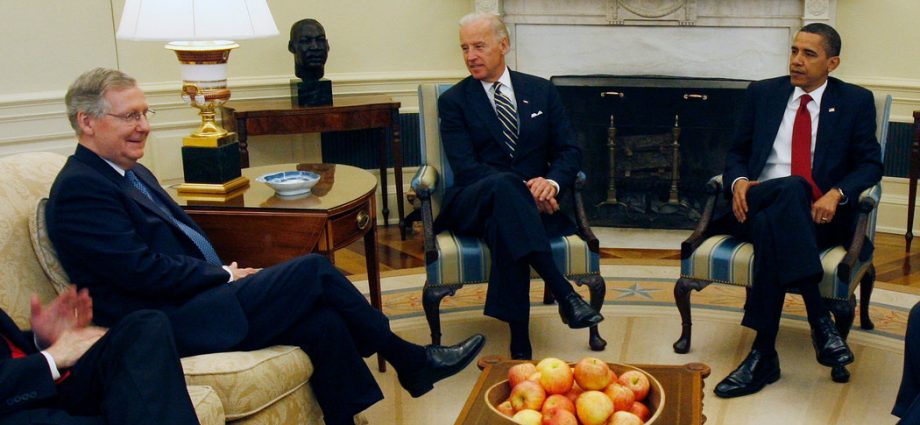Then there was Mr. Obama. The two men felt deeply uncomfortable in each other’s presence, according to their aides and their own public statements. In his book, Mr. McConnell admitted he privately called the president “Professor Obama” because he was so prone to lecturing him. Mr. Obama and his aides thought Mr. McConnell was disdainful and taciturn, according to former members of Mr. Obama’s staff.
“From the beginning, it was clear that President Obama wanted Biden to take the lead with McConnell,” said Ted Kaufman, a longtime aide and friend to Mr. Biden. “Biden had a very realistic view of McConnell and knew that they had major differences.”
After being overshadowed during Mr. Obama’s first term, Mr. Biden embraced the opportunity to become a power player.
In 2010, Mr. McConnell and Mr. Biden negotiated a last-minute deal that prevented a government shutdown. A year later, Mr. McConnell hit the Biden speed dial again, this time to avert a potentially catastrophic failure to raise the debt limit precipitated by Tea Party Republicans in the House.
All of that was a dress rehearsal for 2012 and another showdown over the debt limit, the so-called fiscal cliff. Mr. Obama was fresh off a convincing re-election win over Mitt Romney that was propelled, in part, by his promise to scrap tax cuts for families earning more than $250,000, enacted by George W. Bush in 2001.
Mr. Reid staked out a maximalist position, saying he was willing to go over the cliff; Mr. Obama, despite having campaigned on the issue, was worried “that a sudden major tax hike and massive spending cut could together trigger another recession,” Gene Sperling, a top Obama economic aide, said in an interview.
[Which Democrats are leading the 2020 presidential race this week?]
Two days before the deadline, the talks stalled. That’s when Mr. McConnell placed his call to Mr. Biden, who was on Air Force Two. “Get off now!” Mr. McConnell said in a voice mail message, according to former aides to both men.

